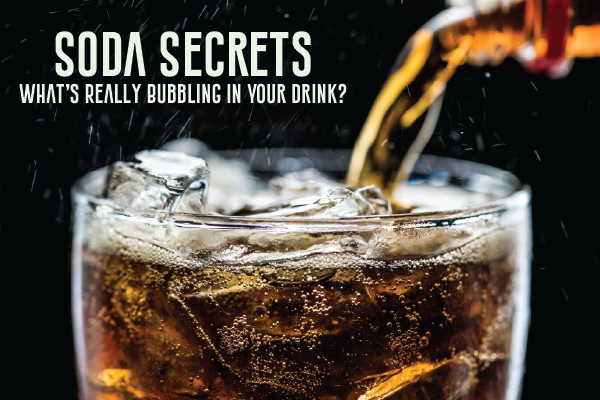
Soda is one of the most popular beverages in the world. Whether it’s Cola, Lemon lime, Mango, Litchy or Fruit, the fizzy delight has been a go-to refreshment for decades. But have you ever wondered what actually goes into your favourite soda? While most brands list ingredients on the label, the true composition of soda contains more than just meets the eyes. Let’s take a closer look at the most important ingredients and hidden components with soda magic.
1. Carbonated Water: The Base of All Sodas
The main ingredient in soda is Carbonated water, which is simply water infused with carbon dioxide gas under pressure. This process, called carbonation, gives soda its signature fizz and refreshing taste. While carbonation itself is harmless, some sodas use artificially produced carbon dioxide, which may not be as natural as the gas found is sparkling mineral water.
2. Sweeteners: Sugar and Artificial Alternatives
One of the most defining elements of soda is its sweet taste. There are two main types of sweeteners used in sodas:
a) Sugar and High-Fructose Corn Syrup (HFCS)
Traditional sodas contain sugar (table sugar) or high-fructose corn syrup (HFC). HFCS is cheaper alternative that comes from corn and is popular in many soft drinks. However, studies have linked excessive HFCS consumption is linked to obesity, diabetes, and liver problems.
b) Artificial Sweeteners
Diet sodas often replace sugar with artificial sweeteners such as aspartame, saccharin, sucralose, or acesulfame potassium. While these sugar substitutes reduce calories intake, some studies suggest potential long-term health risks, including metabolic disorders and gut health issues.
3. Acids: The Tangy Kick
To balance the sweetness and enhance the flavour, sodas contain acids like:
- Phosphoric Acid – Common in colas, it gives a sharp tangy flavour but can weaken bones and teeth over time.
- Citric Acid – Found in fruit-flavoured sodas, it provides a tart taste and occurs naturally in citrus fruits.
- Carbonic Acid – A byproduct of carbonation, responsible for the slight acidity in fizzy drinks.
Excessive consumption of acidic sodas can lead to problems with dental erosion and acid reflux issues.
4. Caffeine: The Hidden Simulant
Many sodas, especially colas and energy drinks, contain caffeine. This natural stimulant improves alertness and provides a slight energy boost. However, caffeine can be addictive and can lead to sleep disturbances, anxiety and dehydration when consumed in excess.
Some sodas offer caffeine-free versions, while others rely on it to give consumers an extra “kick.”
5. Artificial Flavours and Colours
a) Synthetic Flavours
Most sodas don’t actually contain natural fruit or cola extracts. Instead, they use artificial flavourers derived from chemical compounds to mimic real flavours. These synthetic flavours create the familiar flavours we love, from vanilla on colas to citrus in lemon-lime sodas.
b) Artificial Colours
To make sodas visually appealing, companies add artificial colouring agents like:
- Caramel Colour – Used in colas, but contain contaminants linked to cancer.
- Red 40, Yellow 5, and Blue 1 – Common synthetic dyes, some of which have been associated with hyperactivity in children.
Consumers are increasingly choosing sodas with natural colours from fruit extracts, but artificial dyes are still an important element of many brands.
6. Preservatives: Keeping Soda Fresh
To prevent durability and prevent bacterial growth, soda preservatives are as follows:
- Sodium Benzoate – Prevents spoilage but may from benzene, a known carcinogen, when combined with ascorbic acid.
- Potassium Sorbate – Used to inhibit Mold and yeast growth.
Preservatives that stabilize soda for several months continue to discuss the long-term health effects.
7. Sodium: The Hidden Additive
Soda is a sweet drink but often contains sodium in the form of sodium citrate or benzoate. This helps to compensate for the taste, but excessive sodium intake can lead to high blood pressure and water retention.
The Health Impact of Soda Consumption
With all these ingredients combined, regular soda consumption can lead to several health issues, including:
- It can lead to several health issues, such as weight gain and obesity due to high sugar and calories content.
- Tooth Decay – Caused by harmful bacteria of acidic ingredients and sugar.
- Diabetes & Metabolic Disorders – Linked to excessive sugar and artificial sweeteners.
- Dehydration – Caused by the diuretic effect of caffeine.
- Bone Weakness— Phosphoric acid may reduce calcium absorption.
The Rise of Healthier Alternatives
With growing awareness about soda’s effects, consumers are turning to healthier beverages such as:
- Sparkling Water – Offers fizz without artificial ingredients.
- Fruit-Infused Water –Naturally flavoured and free of added sugars.
- Herbal Teas – A caffeine-free alternative with natural benefits.
Conclusion: Know What You Drink
Soda has been a popular refresh for decades, but understanding its ingresients is essential for making healthier choices. The combination of carbonated water, sweetneres, acids, caffeine, artificial flavours, and preservatives makes soda enjoyable but also raises helth concerns when consumed in excess. High sugar content can contribute to obesity and diabetes, while acids and artificial additives may have long-term effects on dental health and metabolism.
Sometimes soda does not cuse damage, but regular consumption can affect the wells overall. Moderation is key, and when you know what’s goes into your drink helps in making informed decisions. If you enjoy fizzy beverages, consider switching to healthier alternatives like sparkling water, fruit-infused drinks, or herbal teas. These options provide refreshment without the added sugar and chemicals found in most sodas.
As consumer awareness grows, many brands are now offering better choices with natural ingredients and reduced artifcial additive. The future of beverges is shifting towards healthier, more sustainable options, allowing people to enjoy refreshing rinks without compromising their helth.
At the end of the day, it’s not about completely eliminating soda but about balancing indulgence with mindful choices. Knowing what you drink empowers you to make better decisions for a healthier lifestyle while still emjoying the occasional fizzy treat.
